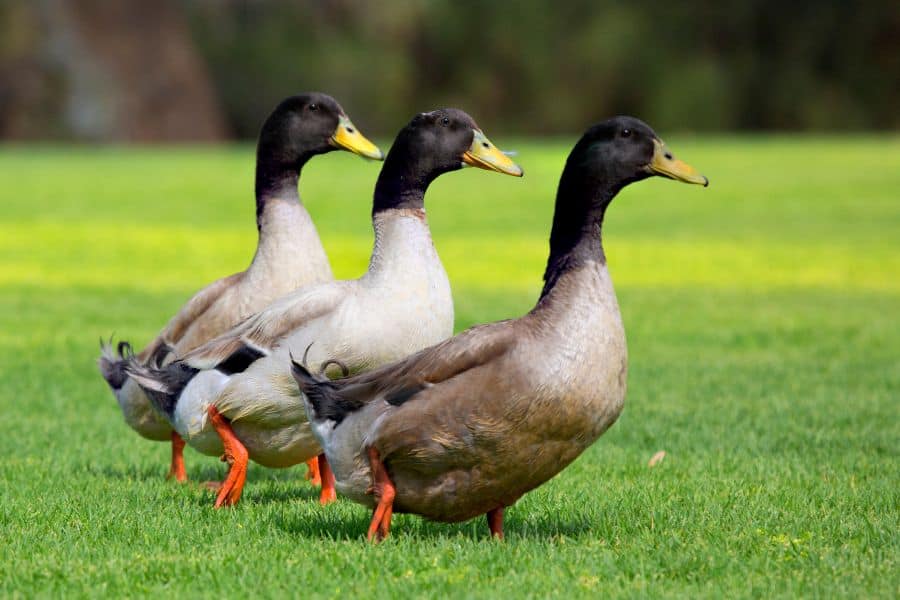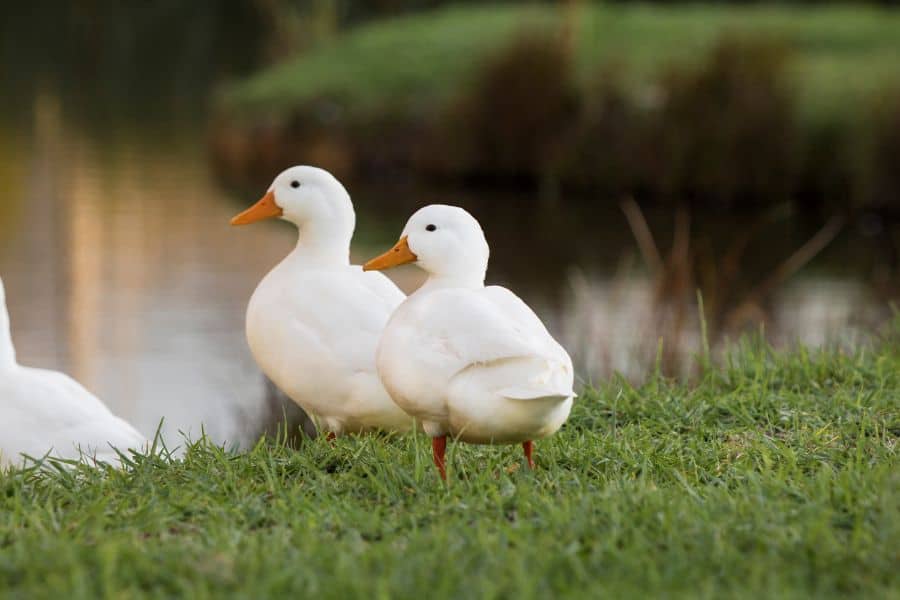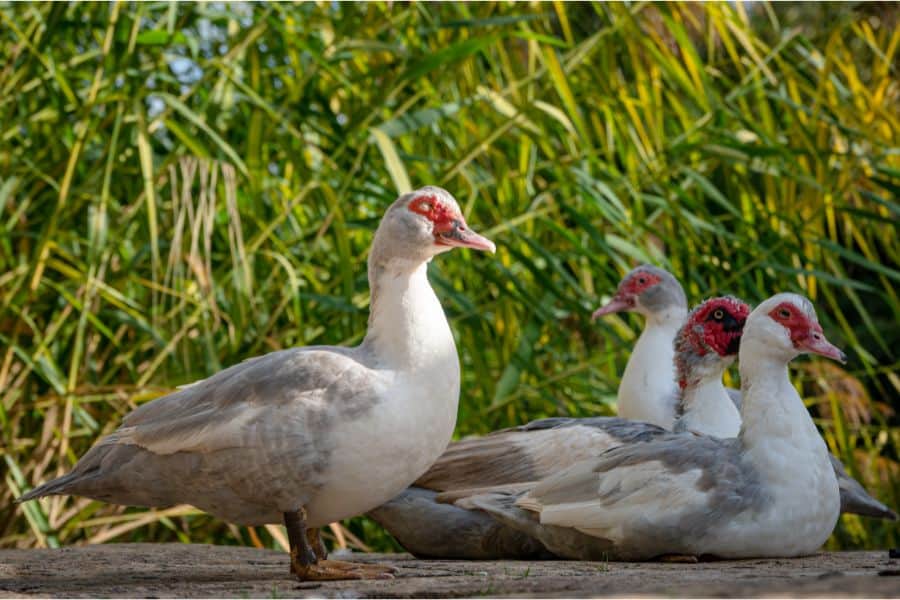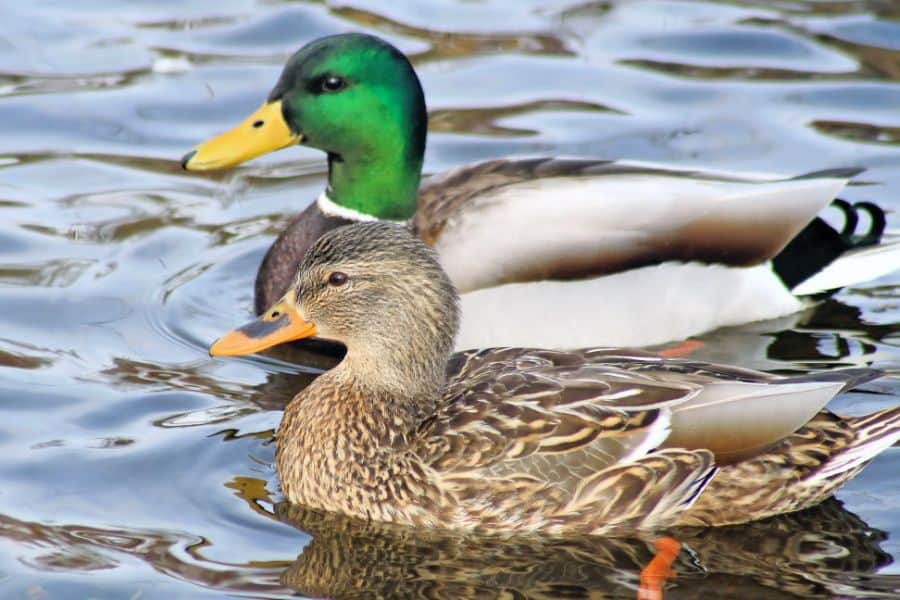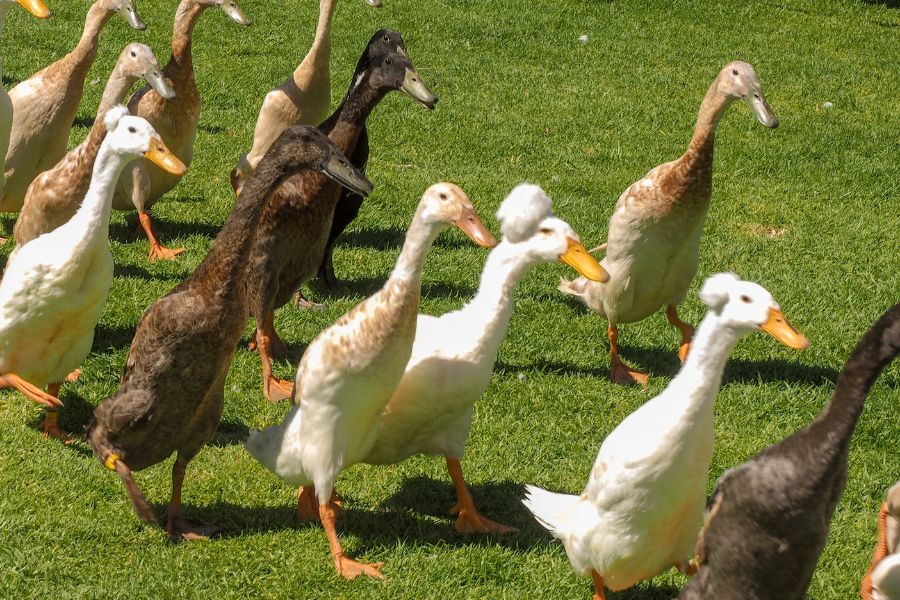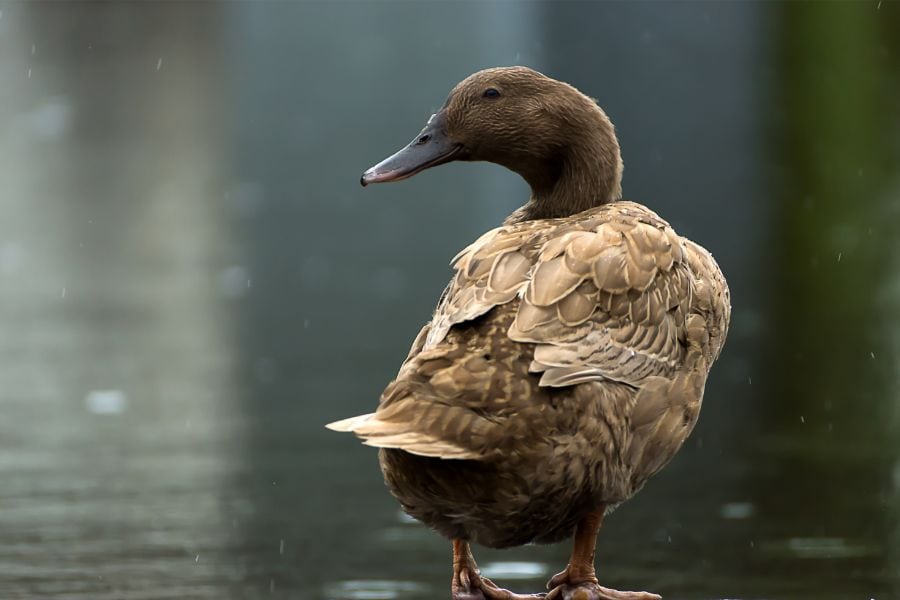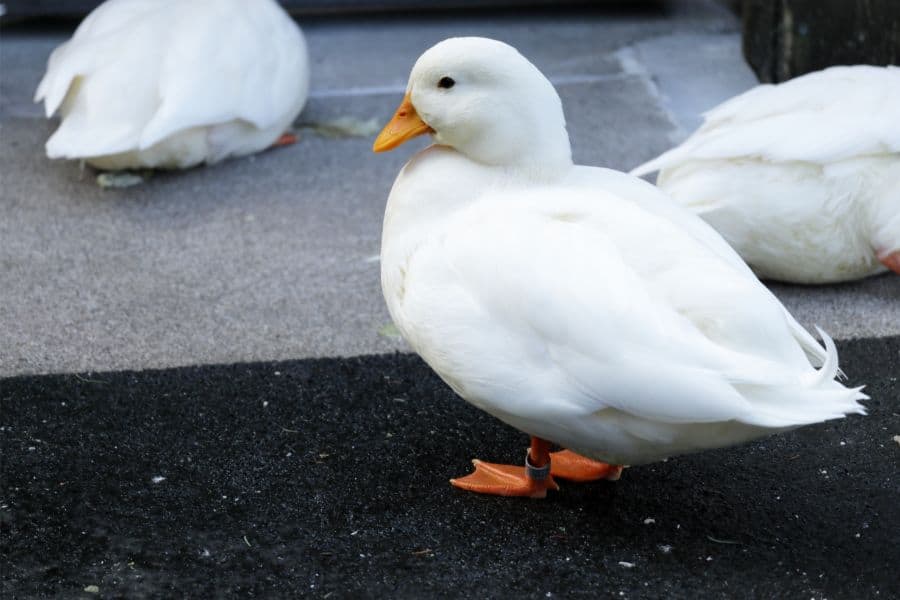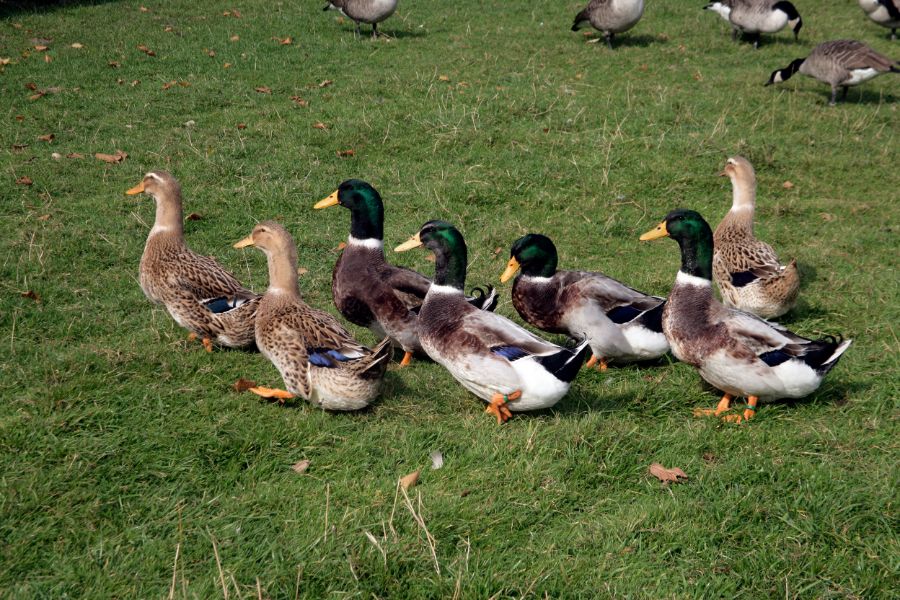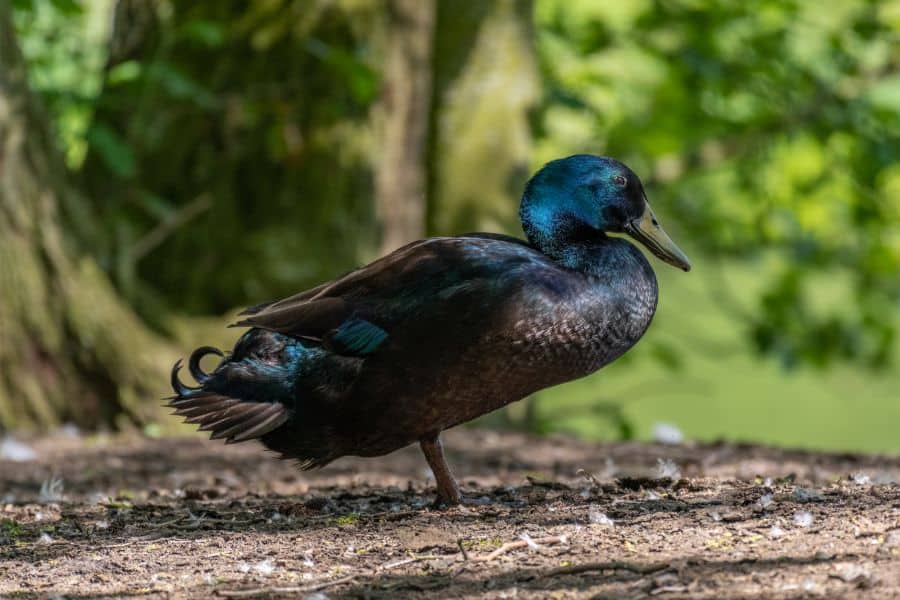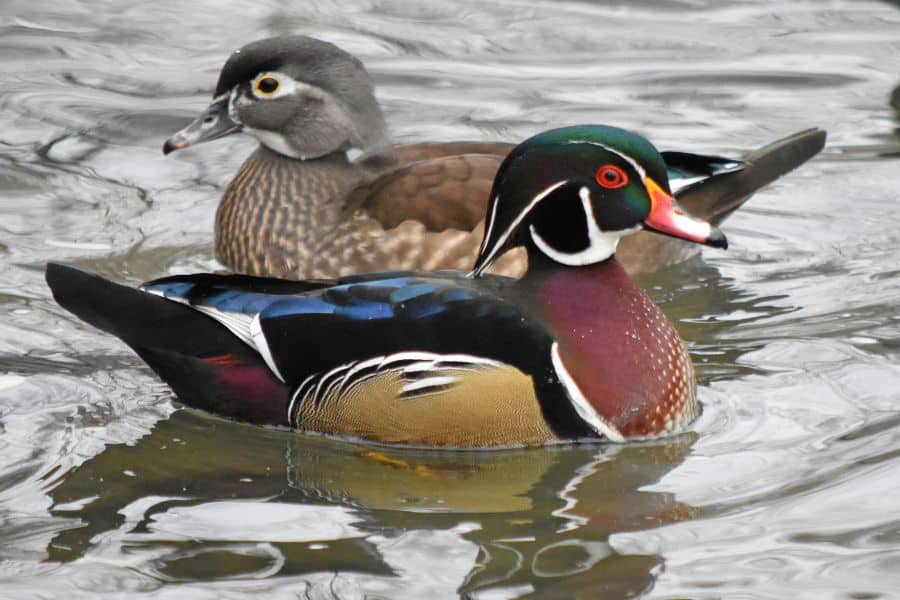Are you looking to add a few quackers to your backyard flock? Or are you simply interested in how long these magnificent birds live?
No matter your reason, we are glad you have found us.
Our piece for the day invites you to explore the world of ducks. But keep in mind your journey spans beyond their graceful glides and quacking conversation.
If we are not wrong, you probably don’t want to raise birds that will die within a few months. You want a flock member that can remain productive for as long as possible.
And keep in mind, our focus is not only on the economic purpose of these birds but also on their social benefits, like offering companionship as a pet. Let’s not forget the aesthetic appeal they add to any homestead.
With that in mind, this post answers one common question we often encounter online “How long do ducks live?” Stick with us as we shed some light on this intriguing topic.
The Lifespan of Pet Ducks
With the rising fit of knowledge about duck’s nutritional and economic value, more farmers around the globe have adopted ducks as pets.
As the trend to domesticate ducks increases, it is essential to ask yourself, “Do domesticated ducks live longer than those in the wild?”. To satisfy your curious mind, we’ve provided you with an answer below.
A Comparison of the Lifespan of Domesticated and Wild Ducks
Ducks that live in the wild don’t enjoy the beauty of long life. As a fact, most of them don’t make it past 2 years.
The reason for their short life is the high mortality rate among their duckling. Imagine: out of every 10 ducklings, only 4 or 5 might live up to adulthood.
Additionally, many wild ducks rarely live up to their first birthday. Among the Mallards, only about 30% live through their first year, and over 60% don’t make it past the first 30 days.
Research shows that most wild ducks meet their death during the period between hatching and fledging. Some might lose their lives because of parent-bird abandonment or sibling rivalry. Others might die due to diseases, falling out of the nest, or environmental factors.
No wonder ducks lay so many eggs – to cover up for the losses incurred.
You would think overcoming infancy challenges will help these birds thrive. But no! Other factors are at play here. For instance, ducks that live to adulthood have to face threats from predators, and harsh weather, among others.
Although some birds have been recorded to live for up to 30 years in the wild, most only survive for about 5 to 10 years.
As for their domesticated counterparts, the story is different.
Ducks raised in captivity receive regular care and maintenance from their owners. When the bird contracts a disease, the farmer will quickly get it treated. If it’s hungry, it will receive healthy and nutritious feed.
For this reason, these ducks often enjoy longer lives. Some can live up to 20 years of age or more. Guinness World Record says the oldest ducks lived to their 49th birthday.
Average Duck Lifespan
Ducks have a short life span compared to other birds, like geese. A domesticated duck has an average life expectancy of 10 years or less. Surprisingly, most giant breeds of ducks have the shortest life expectancy of between 5 and 7 years.
For domesticated ducks, the quality of care can extend or reduce their lifespan. The breed type also matters; some live for 10 to 20 years when properly cared for.
Here’s a brief summary of the average lifespan of popular duck breeds:
| Duck Breed | Average Lifespan | Main Characteristics |
| Pekin | 8 to 12 years | Fast growth, raised for meat, white feathers |
| Muscovy | 8 to 12 years | Unique appearance, quiet and domesticated |
| Mallards | 5 to 15 years | Wild or domesticated, adaptable |
| Indian Runner | 8 to 12 years | Upright posture, good egg layers |
| Khaki Campbell | 5 to 10 years | High egg production, adaptable |
| Call Ducks | 7 to 10 years | Small size, often kept as ornamental ducks |
| Rouen | 5 to 9 years | Larger breed, often raised for meat |
| Cayuga | 8 to 10 years | Dark black-green feathers |
| Wood Ducks | 5 to 15 years | Colorful plumage, cavity nesters in the wild |
The Lifespan of Different Duck Breeds
Different duck breeds have varied lifespans. Let’s quickly look at the lifespans of the following popular duck breeds:
1. Pekin Ducks
Pekin ducks are typically hardy and can survive in different climatic conditions. As a result, Pekins have a considerably long lifespan.
On average, Pekins’ life expectancy is 8 to 12 years if raised in captivity with quality care.
In terms of gender, male Pekins have a higher lifespan than female birds. Notably, female Pekins face several reproductive complications, including egg binding.
Despite this, most complications often go unnoticed. And even when identified, it might be too late to save the bird.
It’s also worth noting that Pekins’ lifespans differ from wild to domesticated varieties.
For instance, wild birds have a shorter lifespan due to many challenges, unlike domesticated Pekins. Beside disease and illness, these birds usually fall victim to predators.
2. Muscovy Ducks
Have you ever seen a duck with bright red fleshy skin around its eyes?
Possibly, you encountered a Muscovy duck.
It’s a hardy duck breed that originally thrived in tropical regions but evolved to live in cold climates. Because of this, Muscovy ducks can live for 8 to 12 years in the wild. Even better? In captivity, their lifespan can reach 20 years.
Before we shift to the next breed, here’s an interesting fact about these wobbling beauties:
Muscovy ducks rarely make a lot of noise so they won’t be a bother to your neighbors. This is a win if you live in an urban or urban area.
3. Mallards
Mallards or “Greenheads” as they are popularly known, fall prey to various predators and hunters in the wild. Therefore, their lives are generally shorter – most birds hardly pass the first two years of their life.
However, individuals that live up to the breeding stage can enjoy a long life, with some living for over 20 years.
As pets, Mallard ducks can have a life expectancy spanning 5 to 15 years as long as they receive quality care.
4. Indian Runner Duck
Despite what its name suggests, there’s no evidence that this duck breed came from India. So, it’s okay to refer to them as Runner Ducks.
One interesting fact about these birds is that they look more like penguins minus the waddling. Hence, the name “Penguin Ducks”.
Ducks of this breed are primarily raised for egg production but not meat. They also make great companion pets for families with kids.
In the wild, Runner Ducks’ survival depends on the availability of resources and safety. But as we know, these are scarce, which reduces their lifespan significantly.
Wild Runner Ducks can live for around 2 years, but those domestically kept in backyards can live for roughly 8 to 12 years.
5. Khaki Campbell
Next on our list is the Khaki Campbell, a unique breed created by crossing the Indian Runner, Rouen, and Fawn ducks.
The Khaki Campbell serves as a multi-purpose duck breed, but most people raise it for exquisite egg-laying abilities – though they rarely brood.
As domesticated ducks, the Khaki Campbells live for many years- about 10 on average. Some even hit 10 years of age under proper care. But prepare yourself for reduced egg production.
6. Call Ducks
Unlike most wild and domesticated ducks, call ducks are mainly kept for ornamental purposes. These ducks come in a variety of colors (up to 20), which makes them the perfect show birds.
And the best part? Call ducks are the perfect match for people who want to add visual appeal to their backyard pond. These ducks can live for about 7 to 10 years.
7. Rouen Ducks
One thing you need to know about Rouen Ducks: they are large!
The ducks originally came from France, but today they are popular globally because of their excellent meat. They also have ornamental value, thanks to their unique coloration and patterns.
How long your Rouen ducks will live will depend on how you raise them. Whether raised as pets or for aesthetic purposes, these birds can live for 5 to 9 years. However, they can reach 12 years if you add some tenderness, love, and care (TLC).
8. Cayuga Ducks
Cayuga ducks are also a typical domesticated breed that can live longer under quality care. Giving them ample living space, nutrition, and water can extend their lifespans.
On average, Cayuga birds live for 8 to 10 years. However, this can decrease if you introduce new birds into the flock without isolating them first. Most new birds bring in foreign bacteria and pathogens that might cause diseases and eventually death.
9. Wood Ducks
Wood ducks are an exciting breed that fancy nesting in trees and flying through the woods. They are also referred to as perching ducks or dabbling birds.
With quality care, the North American Wood Duck can survive for up to 15 years in captivity. This breed can live for around four years in the wild.
Factors that Affect the Average Lifespan of Ducks
The average lifespan of ducks depends on several factors, which are highly linked to the environment and human-controlled elements. These factors include:
1. Healthcare
Ducks, like many birds, are susceptible to several diseases that can cause their death. Some common diseases include:
- Avian cholera
- Duck virus hepatitis
- Insecticide or pesticide exposure
- Aflatoxin poisonings
- Aspergillosis
- Botulism
- Colibacillosis
If you notice any changes in your duck’s health like sudden weight loss, consider contacting your local vet promptly. The sooner your feathered friend receives medical attention, the higher the chances of recovering and surviving.
Remember, you can also prevent these diseases in your ducks by scheduling vaccinations and veterinary checkups.
On top of that, provide your birds with healthy and nutritious foods and clean water. It also helps to give them some treatment and supplements to boost their health.
And please, keep them away from farm and household chemicals and keep their home clean regularly.
2. Food and Nutrition
Ducks require a lot of greens to boost their energy and nutrient levels. So, let them walk around your backyard to feed on grass and weeds. What’s the harm if they can keep your lawn short and clean?
If you have a large land with a pond, let the ducks free range. They can find the protein-rich food they require for growth and development.
You can also opt for commercial feeds because they are rich in nutrients that ducks need to maintain good health and overall well-being.
Rest assured, if you meet your ducks’ diet and nutritional needs, they will undoubtedly live for many years.
3. Shelter
Ducks have superior genes that make them super hardy and tolerant to hot and cold climates. Regardless, they need a good shade that protects them from predators and harsh elements.
As a rule of thumb, each bird needs approximately 0.2m2 of floor space inside the shade. Make sure the shed stays clean, dry, and well-ventilated at all times to prevent disease-causing pathogens and bacteria.
Introduce appropriate litter like wood shaving that could absorb moisture and bad odor in the coop. It will also keep your birds warm during the cold winter.
Finally, bring in nesting boxes, feeders, and waterers.
4. Ample Space
Any duck owner will tell you these quackers love to chat and run across the yard. This is how they exercise and keep healthy and happy.
If you plan to raise ducks, ensure you have ample space to allow them to roam while foraging and dining on insects. It doesn’t hurt to create a swimming place for them, be it an ornamental garden pond or a pet pool.
Read More: Can Ducks and Chickens Live Together?
Closing Thoughts
Ducks are amusing and entertaining. Frankly, you will have lots of fun watching their antics and fascinating walking styles. Not to mention they will provide you with nutrient-rich eggs and tasty meat.
But perhaps the best part is that they can give you company for several years. Most duck breeds have an average lifespan of between 5 to 10 years. If you ask us, that’s a long time to build a strong bond with your beloved quackers.
However, this will only happen if you meet your ducks’ care and nutritional requirements. Yes! Ducks might have superior genes that make them live longer, but still, they need healthy and nutritious food.
In addition, they require a clean coop, regular health checkups, and enough space to thrive and have a longer lifespan.
